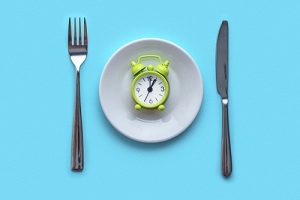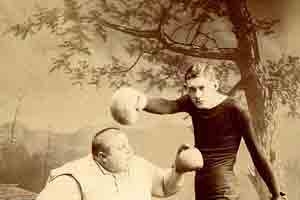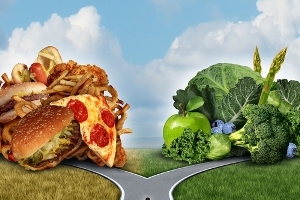Lose Weight/Gain Weight - What's Your Perfect Body?
6 things you must know about weight if you want to achieve your perfect body
 Perfection. But for whom?
Perfection. But for whom?Body culture! It's all around us. Whether male or female, it seems our modern Holy Grail is the ideal body. We're all encouraged to idealize physical perfection and to make our own bodies as near to ideal as possible. Of course, the 'perfect body' is perceived as different for both men and women.
So what's your idea of the perfect body?
For a man, is your perfect body all rippling muscle belonging to the kind of guys who present a walking storefront of proudly rippling 'status muscle' to the world? The kind of chaps who wear too-small T-shirts to ensure they get their buck's worth of attention for all the invested effort?
What about for a woman? Is it skinny and waiflike, the sort of emaciated look so popular on fashion runways? Size zero? Or something more 'womanly', more voluptuous and curvaceous?
The 'Perfect Body': It's a judgment call
Back in ancient toga/temple Greek times, balance was the key. The development of the mind was an intrinsic part of honing a well-proportioned physique long before Descartes encouraged us to see the mind and body as separate. The firm, taut, symmetrical body preserved in marble may have even been an outward metaphor for psychological and spiritual inner perfection. The statues are not fat, but neither are they over-muscled.
My opinion? I happen to feel that the perfect body is the most healthy and therefore balanced body.
When we talk about a well-balanced body, we really mean the balance of muscle tone vs. fat (as well as body symmetry or 'good bone structure'). Some of this is open to influence through lifestyle choices, and some is down to genetic luck.
So what's the most popular body type? (I'm talking averages here.) Whilst what one person sees as physical perfection in another may vary to some extent (for example, some men like very obese women, but most men don't), generally it seems we are 'hard-wired' to find the healthiest-looking bodies attractive. This is because in nature bodies that display 'health markers' are:
- More likely to be robust enough to survive. For example, body and facial symmetry have been found to co-exist with a strong and healthy immune system.
- More likely to produce healthy offspring and be around to bring them up.
Okay, I've really got to stop referring to living, breathing people with personalities, characters, and possibly spiritual beliefs as 'bodies', but the human body is what this piece is all about. So why do most women prefer men who are reasonably muscled rather than stuffed to the brim with it? And why do men generally prefer women who have some fat and curve rather than either the too fat or too thin shape?
Perfection, harmony, and balance
First the male body: Muscle costs a lot to run. Within your body is a protein called myostatin that limits muscle growth (1). During evolution, too much muscle would have made survival very tough because it's so 'metabolically expensive'. That means that it takes A LOT of feeding. Just as too little muscle tone would have spelt death in times gone by, so, ironically, could too much muscle.
This may explain why women are generally less attracted to super-muscled men. Perhaps they instinctively sense this kind of body, whilst impressive, isn't cost effective from a survival standpoint. A mate with that kind of body may be feeding his own body at the expense of his woman's or children's.
A reasonable degree of muscle and a reasonable level of fat (but not 'fat' by today's standards) would have spelt survival in your mate and therefore is more generally deemed attractive.
Likewise, a too-skinny, muscle-wasted, low-fat look in a woman would denote lower fertility and survival ability and would therefore be deemed less attractive. Being too low in fat levels and muscle tone, too much weight loss in general, is associated with extreme age or illness.
Men typically overestimate how much muscle women generally find attractive in them and women typically underestimate how much fat men like on a woman (2).
But what about your perfect body?
The ancient Greeks were right. The body should be a balanced expression of a balanced mind. Not everyone will naturally have the proportions of a Greek god or goddess, but the healthier you become, the more attractive your body will be - because health is attractive. Your mind should lead your body to its ideal state. So with that in mind:
1) Remember your perfect body is your perfect body
As a species, we like to copy other people. This is understandable; we're tribal. But if we're so busy trying to be someone else, we may forget to be ourselves. Remind yourself that your body is unique and will have a unique potential. This doesn't mean you are destined to be fat or emaciated, but it does mean that we all have to work with what we have.
Your perfect body is your healthiest body. This is also the body that will look best 'on' you. Your healthiest body will make you the most attractive you can be and will also feel the best. It won't be a carbon copy of some celebrity's figure; it can only ever be your best body.
Whatever your body type, living in ways that are healthy and having a good relationship with your body will take you much further toward your perfect body. So take these psychological steps to unleash your perfect body. (I've never actually seen a body 'unleashed', but it sounds intriguing.)
2) Remember your perfect body is an expression of living well
Rather than getting a more attractive body being an end in itself, focus on getting healthier and let your perfect body be a happy side effect of living well, rather than an all-encompassing obsession in its own right. Remember that people compromise their health all the time (think steroid or laxative abuse) by just focussing on desperately trying to get the 'perfect' body.
Your balanced body needs to be an extension of your balanced mind.
3) Remember the importance of muscle
Having masses of muscle isn't essential for health (as we've seen, carrying too much can be 'metabolically expensive'), but having good muscle levels is essential to health and fitness in both men and women (3).
Muscle mass and strength seem to lead to a 40% less chance of getting cancer (4). And maintaining and increasing muscle mass in women has been shown to greatly minimize the risk of osteoporosis or 'brittle bone disease' (5). If you're a woman, forget worrying about becoming 'too muscle-y', because the risks of not strengthening your muscles far outweigh the risk of looking bulked up. Put it this way: if you were genetically prone to putting on loads of muscle, it would have already happened.
As you age over thirty, unless you take steps, you'll experience a progressive loss of muscle tone (sarcopenia), which makes the fat hang off the body and slows down the metabolism - meaning we gain fat as we lose muscle tone. Additionally, when people cut calories in their diets, they lose the metabolically expensive muscle first; so they may be just as fat even if they drop a clothing size. What's more, because they now have less fat-burning muscle, they have set themselves up to get even fatter in the future. So if you want a healthier body, you need to work your muscles to lose fat and retain fat-burning muscle.
Having muscle tone keeps you looking slimmer because at rest, one pound of lean muscle tissue burns up to 25 times more calories than a pound of fat (6). So if you build muscle, you may have to eat a little more to look slimmer! Building muscle also improves insulin sensitivity, which is vital to your health. Even if you are one hundred, you can make amazing gains in health and appearance by taking up resistance training (7). Weight training is for smart people, not 'muscle heads'.
4) Don't feel guilty for not exercising every day
After you've exercised, your body's muscles go into a 'catabolic state', meaning it is breaking down as it is recovering. As it recovers properly, it is in an anaerobic state - building up and getting stronger. Research (8) has found that short, intense, and relatively infrequent exercise is better for body tonality than every day, time-consuming 'steady state cardio'. So remember that proper rest between exercise sessions is essential in our quest for a better body, because over-exercising can cause muscle wastage, making it more likely you'll store more fat.
5) Don't feel guilty about eating
Calorie restriction diets don't tend to work (9) because:
- The less you eat, the less you'll naturally want to exercise - the body tries to hang onto energy balance.
- Your fat-burning muscles will vanish before any fat does, so you might look slimmer when clothed, but naked you'll look saggy - or 'skinny fat'.
Of course, it's not so much how much you eat, but what you eat. Eating foods rich in sucrose (sugar) has the effect of releasing insulin in the body, which is basically your fat storage hormone (10).
So don't feel guilty for 'feeding the machine', but feed it the right fuel.
6) Put your mind to your perfect body
And finally, make a point of regularly envisaging the body you really feel in your heritage. Your perfect body.
Close your eyes and imagine the journey toward your healthiest, most toned body - because you and your 'real body' need to unite for the sake of your best possible health. Learn self-hypnosis to daily close your eyes, go inward, and see yourself discovering your physical potential - not in an obsessive, perfectionist way; but in a healthy your-body-is-a-by-product-of-your-lifestyle kind of a way.
Some of the ideas in this article may challenge conventional 'wisdom' (received prejudice) a little. Reduction diets don't tend to work long-term. Fat doesn't make us fat, but sugar (in all its forms) does (11). Short, intense muscular effort exercise is better for your 'perfect body' goals than hours of low-intense work on a treadmill. But I urge you to follow this up by reading some of the material I've mentioned in the reference list below.
Remember: fat and muscle are your friends. But you need to have the right amounts of both and as George Bernard Shaw so famously wrote:
"No diet will remove all the fat from your body because the brain is entirely fat. Without a brain, you might look good, but all you could do is run for public office."
Get a free hypnosis session with our new Weight Loss app for iOS & Android
Includes our most popular weight loss session free, with the option to upgrade to 10 more sessions.
Get the Weight Loss Hypnosis app for iOS (iPhone or iPad) here or for Android here.
References
- It's been estimated that around one in a million people have a myostatin deficiency, making them naturally enormously muscular and strong from a very young age.
- Dixson, B.J., Dixson, A.F., Morgan, B., Anderson, M.J. (June 2007). Human physique and sexual attractiveness: sexual preferences of men and women in Bakossiland, Cameroon. Arch Sex Behav 36 (3).
- See: Hurley, B. Does Strength Training Improve Health Status? Strength and Conditioning Journal 16 (1994) 17-13.
- Ruiz, J.R., Sui, X., Lobelo, F., Lee, D.C., Morrow, J.R. Jr., Jackson, A.W., Hébert, J.R., Matthews, C.E., Sjöström, M., Blair, S.N. Muscular strength and adiposity as predictors of adulthood cancer mortality in men. Cancer Epidemiol Biomarkers Prev. 2009 May;18(5):1468-76. Epub 2009 Apr 14.
- A 1994 study published in the Journal of the American Medical Association found that even for women as old as 70-plus, lifting weights regularly led them not only to avoid expected losses of bone density, but increase bone density.
- See: Ballor, D.L., Katch, V.D., Beque, M.D., and Marks, C.R. Resistance weight training enhanced lean body weight maintenance. American Journal of Clinical Nutrition 47 (1988) 19-25.
- See: Melow, S., Tarnopolsky, M.A., Beckman, K., Felkey, K., and Hubbard, A. Resistance Exercise Reverses Aging in Human Skeletal Muscle. (2009) Department of Health, Human Performance, and Recreation. Baylor University.
- See Body by Science: A research based program for strength training, body building and complete fitness in 12 minutes a week by Doug McGuff and John Little.
- Long-term, eating less than we need tends to make us move less, meaning we expend fewer calories. The body also gets the message that food is in short supply, so becomes better at clinging to fat. See "The myth of diet in the management of obesity" by George Bray of the Tufts University School of Medicine in Boston, way back in 1969. More recently, in 1995 Jules Hirsh published in The New England Journal of Medicine an account of a study he conducted with obese clients, also showing that calorie restriction results in lower calorie expenditure and is therefore not an effective way to diminish excess adipose levels.
- See: Good Calories, Bad Calories by Gary Taubes and his latest book, Why We Get Fat and What to Do About It.
- See Gary Taubes's Good Calories, Bad calories: Fats, carbs and the controversial science of diet and health (pgs 195-203) and John Yudkin's book Pure, White and Deadly for an understanding of just how sugar raises stored fat levels in the human body.








